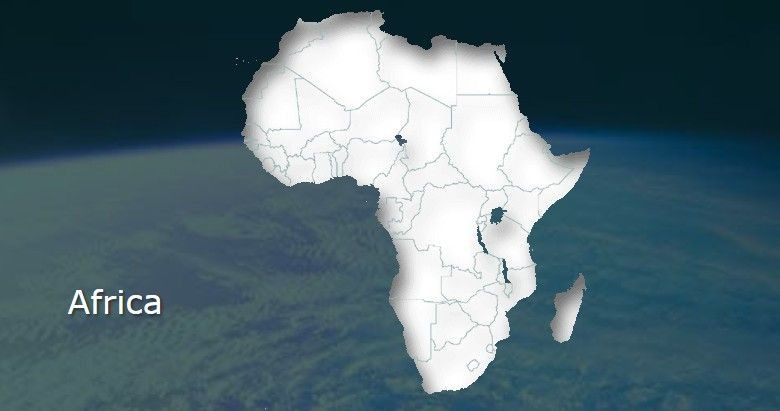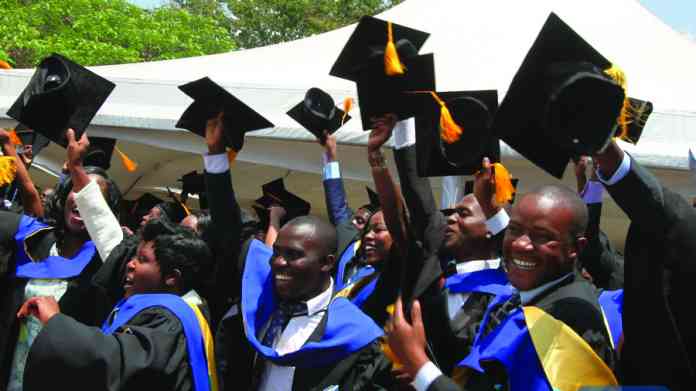
TOMORROW it’s Africa Day. From the bustling streets of Lagos to the serene landscapes of Serengeti, the spectacular sand dunes in Namibia and the majestic Victoria Falls, Africa’s vibrancy, richness and breath-taking beauty is simply undeniable.
However, with over 1,2 billion people speaking more than 3 000 languages in 54 countries and a tapestry of diverse cultures and histories, Africa faces systemic challenges that have persisted for decades.
Talk of political instability — coups in West and Central Africa, economic woes, social injustices and inequalities that stalk the motherland. It seems the battles never end. It seems Africa will never know proper peace and development.
Some of the pressing issues include the high unemployment rate, particularly among the youths, and rising poverty. The scale of corruption is astonishing.
Recent statistics show that about 60% of Africa’s unemployed are young people. This “lost generation” is a wake-up call to implement economic reforms, job creation and building relevant education systems for increased access to inclusive, lifelong, and quality learning in Africa.
The African Union’s theme for this year is “Educate an African fit for the 21st Century”.
Without meaningful opportunities, many youths turn to dangerous ways of survival; substance abuse and crime. It’s sad.
The late former United Nations secretary-general Kofi Annan pointed out that: “Knowledge is power. Information is liberating. Education is the premise of progress, in every society, in every family”.
- Tarakinyu, Mhandu triumph at Victoria Falls marathon
- What a taste of Africa
- ‘Communities must see value of wildlife’
- MP engages traditional leaders to fight moral decadence
Keep Reading
People in Need media coordinator Conor Pleše concurred saying;“If knowledge is power, then education is the key to unlocking that power”.
However, according to the Unesco and AU, more than a quarter of school-age children were out of school in 2023. The report explains that nine out of 10 school children still cannot read or write by age 10, causing concern for the quality of available education.
In view of this year’s theme, what a great honour it is to be commemorating Africa Day in Bulawayo with a group of upcoming journalists entering the sector given to oppressing women.
Through the Friedrich Naumann Foundation-sponsored womentorship programme, launched in 2021, we have trained and mentored close to 350 young female journalists and journalism students from across Zimbabwe. This year, we will be training and mentoring 60.
As we reflect on the importance of education, let the words of African heroes guide us. Nelson Mandela once said: “Education is the most powerful weapon which you can use to change the world”.
This sentiment is echoed by Malala Yousafzai’s powerful statement, “One child, one teacher, one book, one pen can change the world”.
On this day, we should reflect on both the remarkable progress and the formidable challenges that define our continent.
It is not only a day to celebrate our rich cultural heritage and unity but also a moment to confront the pressing issues that impede our development.
UN Secretary-General António Guterres observed that “but a bright future for Africa’s 1,2 billion people means addressing the challenges blocking Africa’s progress — from the effects of climate change to deadly conflicts and unconstitutional changes of government to hunger, poverty, inequality and crushing debt burdens.
“We need to rescue the Sustainable Development Goals (SDGs). This will require, among other actions, that we reform the international financial architecture so developing countries can access the resources they will need to invest in the future of their people — including strengthening education systems, this year’s African Union theme.”
Africa Day 2024 is a call to action for our future. By investing in education, we invest in the potential of our people and the prosperity of our continent.
Initiatives like the African Continental Free Trade Area (AfCFTA) can help the region realise its potential.
The AfCFTA represents a beacon of hope.
It aims to create a single market for goods and services, enhancing intra-African trade and boosting economic growth.
This initiative could significantly reduce the continent's reliance on foreign markets, creating more resilient economies and resilient education systems that empower every African to achieve their full potential.










